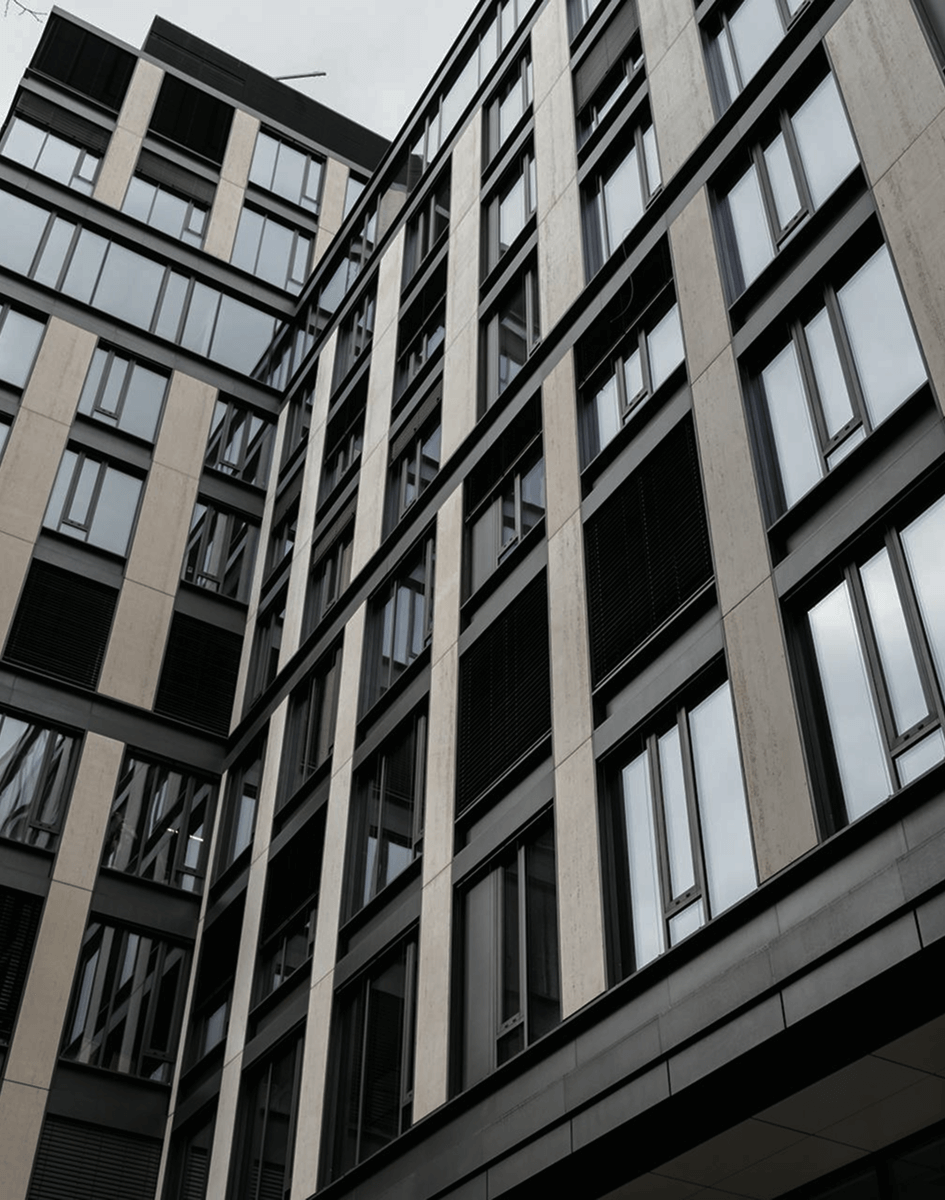Commercial Real Estate
Refinance
If you own commercial real estate and are interested in lowering your interest rate or obtaining cash out, refinance may be for you.
Purchase
A house is one of the biggest purchases you can make, we help you determine what you can afford and walk you through each financing step in the home-buying process.
Commercial real estate loans are designed to help borrowers purchase new commercial property, renovate income-producingproperties, or refinance real estate debt on a property they already own.

How do
Commercial Real Estate
Loans work?
Commercial real estate loans are designed to help borrowers purchase new commercial property, renovate income-producing properties, or refinance real estate debt on a property they already own.
Although commercial real estate loans work similarly to traditional mortgage loans for individuals, there are some key differences that small business owners should understand.
How do
Commercial Real Estate
Loans work?
Commercial real estate loans are designed to help borrowers purchase new commercial property, renovate income-producing properties, or refinance real estate debt on a property they already own.
Although commercial real estate loans work similarly to traditional mortgage loans for individuals, there are some key differences that small business owners should understand.

Loan-to-Value Ratio
With commercial real estate loans lenders typically want an LTV of around 75% to 80%, according to the National Association of Realtors (NAR). This means you either need to purchase an undervalued property or have a 20% to 25% percent down payment before you approach a lender if they are using LTV to determine the loan amount.
That said, the NAR also found that just 60% of commercial real estate lenders used LTV as a criterion for determining how much a business can borrow. The remaining 40% used what’s called the debt service coverage ratio, or DSCR for short.
The DSCR is used to measure the ability of a borrower to pay its current debt obligations with its existing cash flow. To calculate it, you divide your annual net operating income by your total debt payments for the year. According to the NAR, the median DSCR is 1.25.
Personal Guarantee vs.
Non-Recourse Loans
Whether you get a mortgage or a commercial real estate loan, the lender will use the property as collateral for the debt. But in some cases, it may also require a personal guarantee.
Depending on how long you’ve been in business, your company may not have the financial track record required by the lender to qualify for a commercial real estate loan. In this scenario, the lender may ask the principals or owners to guarantee the loan. This means that if your business can’t repay the debt, you as the borrower agree to be personally liable for making the monthly payments, in the event that the property itself doesn’t fully cover the amount you still owe.
In another scenario, the lender may not require a personal guarantee and simply use the property itself as the only means to recover the loan funds should you be unable to keep up with your mortgage payments. This is sometimes called a non-recourse loan because the lender cannot get additional money from the business principals or owners if the property doesn’t fully cover the amount owed.

Types of
Commercial Real Estate Loans
Depending on the needs of your business and its qualifications, there are six primary types of commercial lending that you can use to achieve your goals:
- Permanent loans – A permanent loan is the first loan on a commercial property, similar to a traditional mortgage loan
- SBA loans
- Bridge loans
- Lines of credit
- Hard money loans
What does it take to qualify for a
Commercial Real Estate Loan?
Every lender has its own criteria for commercial real estate loans, but there are some important questions to consider before you apply. For example, how much is a down payment on commercial property? And what are the business financial requirements? Do you have the credit scores to support a low interest rate?
As for business financials, what you’ll need depends on the lender. For example, SBA 504 loans actually have a cap: your business’ tangible net worth cannot exceed $15 million, and average net income cannot exceed $5 million after taxes for the prior two years.
With commercial lenders, you may be required to meet certain minimums, such as having at least two years in business under the current ownership and $250,000 in annual revenue.
Femme Capital Partners will analyze your business/business plan and determine which product may best suit your needs.


How much do you need
to put down on a
Commercial Real Estate Loan?
You can generally expect to put down a minimum of 20% on most commercial real estate loans (the exception being SBA loans, which start at 10%). Depending on the lender, the situation, and your business’ financials, though, you may be required to put down much more.
Also, keep in mind that a higher down payment means a lower monthly payment and lower interest costs going forward.
It’s also important to note that commercial real estate loans typically don’t allow you to pay off your loan early without some kind of fee or penalty. Here are some potential ones you can come across:
- Prepayment penalty – This is typically a percentage of the balance the lender is still owed at the point in the amortization schedule when you pay off the debt early.
- Interest guarantee – With this clause, the lender is entitled to a certain amount of interest regardless of when you pay off the debt. For example, a loan may have a guarantee for 10% interest for the first five years, then a 5% prepayment penalty after that.
- Lockout – With this clause, the borrower is prohibited from paying off the debt early. A common lockout term is five years.
Interest rates and fees for
Commercial Real Estate Loans
Commercial real estate loans typically have higher interest rates than residential mortgage loans, with an average rate of 5 to 11% (as of this writing). Some lenders may go lower than that range, however, depending on the loan type and structure and the financials of the business. For small businesses that qualify, for example, SBA 504 loans typically provide lower commercial real estate loan rates, with averages below 3%.
You can also expect to pay some closing costs, including appraisal fees, origination fees, legal and loan application fees, and more. These fees typically amount to 1% to 2% of the commercial loan amount, which is much lower than what you’d expect with a residential loan. If you’re getting an SBA loan, though, you can also expect to pay a guaranty fee, which can be as high as 3.75% of the guaranteed portion of the loan on its own.
Where a commercial real estate loan can get really costly is with prepayment penalties and fees.
That said, commercial real estate loans don’t require private mortgage insurance like conventional mortgage loans, so you won’t have to worry about this ongoing cost.


Obtaining a
Commercial Real Estate Loan
Because each type of commercial loan will have a slightly different process for applying and getting approved, it is best to leave the hard work to Femme Capital Partners. We will help you to determine which loan type will best suit your needs and guide you through the process.
Preparing for a
Commercial Real Estate Loan
The more prepared you are, the easier the application process will go. Start by placing a call to us so that we may provide you with a simple checklist that will allow you to prepare with ease.
If you know your credit scores won’t qualify you for the best rates, you might consider building your credit before applying. You can do this by paying down other debt, making your loan payments on time, and monitoring your credit report regularly, but of course, we can help you with that as well.
Also, before applying, you should prepare a business plan or update your existing plan. Taking on too much debt could result in a seizure of your property, so you will want to be sure you have considered the added expense. We will review your plan for you and assist you in making that upfront determination.


Commercial Real Estate Loans in summary
Commercial real estate loans can provide a great way for small business owners to build and/or expand their businesses. With so many financial solutions and terms to think about be sure to call us early and allow us the time to do the shopping for you. We have long time, existing lender relationships developed already that will allow us to take the pain out of the process.
